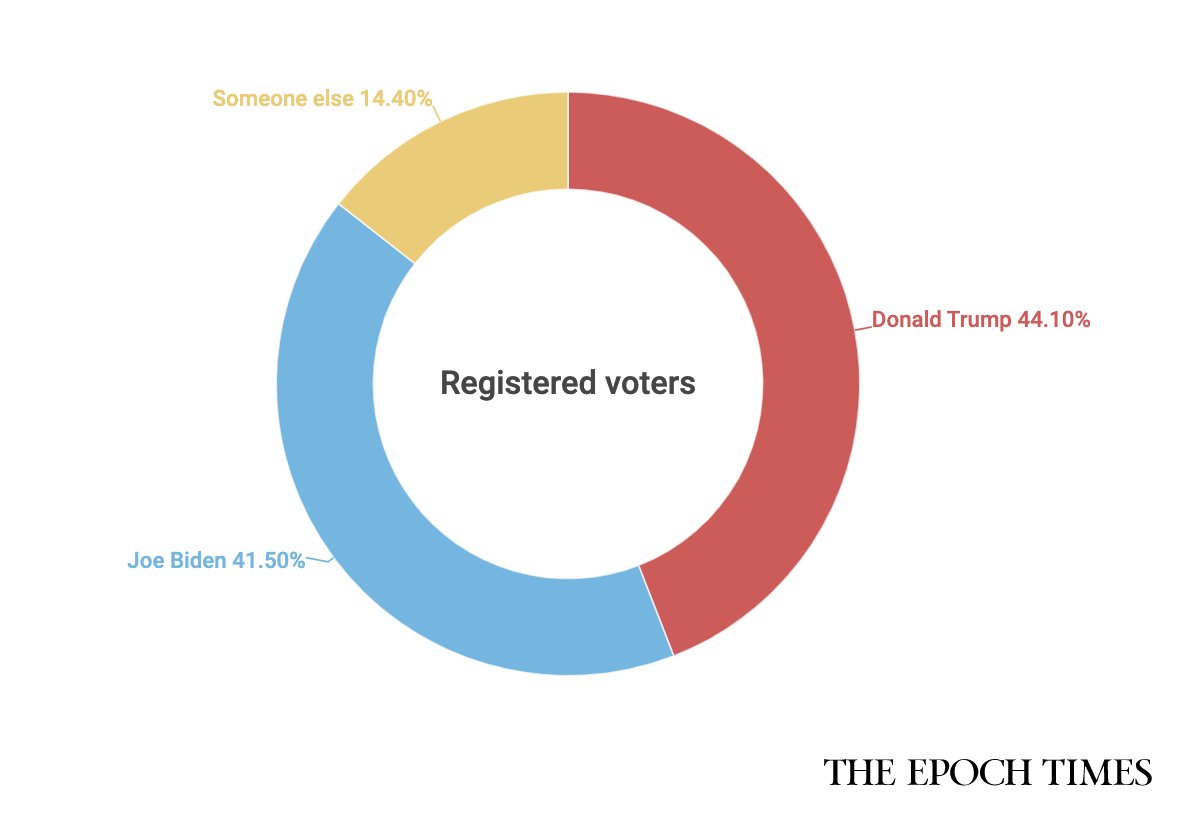POLL: #JoeBiden holds an overall 6-point lead among registered #Voters in the Rust Belt (#Iowa, #Michigan, #Minnesota, #Ohio, #Pennsylvania, and #Wisconsin) according to an #EpochTimes poll. (Thread👇) theepochtimes.com/poll-biden-ahe… 

However, among likely voters with no undecideds, the race between #Trump and #Biden tightens to nearly dead-even (48.7% to 48.6%), fueled by greater enthusiasm among #TrumpSupporters.
The difference in enthusiasm for the candidates is significant.
The difference in enthusiasm for the candidates is significant.

“In typical election years, extreme enthusiasm gaps this large can prove very consequential to turnout,” Big Data Poll Director Rich Baris said in a statement.
“It’s unclear whether widespread changes to mail-in voting this year will help blunt the effects of that enthusiasm.”
“It’s unclear whether widespread changes to mail-in voting this year will help blunt the effects of that enthusiasm.”

POLL: As we found in The #EpochTimes National Poll, both registered and likely #Voters expect President Trump to win re-election in November, 44.1% to 41.5% and 44.4% to 41.7%, respectively. theepochtimes.com/poll-biden-ahe… 

More #Voters cited the “Economy and Jobs” as the issue most important to their vote at 33.8%, beating out “coronavirus” at 22.9%, “Healthcare” at 19.2%, and “Policing and Crime” at 8.5%. 

• • •
Missing some Tweet in this thread? You can try to
force a refresh





![[A movie still from the 1955 “To Hell and Back” depicting Murphy’s time in combat. He starred as himself in the film. Universal Pictures]](https://pbs.twimg.com/media/GtZ3pUbWUAAuBDF.jpg)
![[Audie Murphy’s young self played by actor Gordon Gebert in “To Hell and Back.” Universal Pictures]](https://pbs.twimg.com/media/GtZ3pUeXMAAcYZu.jpg)
![[Audie Murphy being rejected by the U.S. Navy, in “To Hell and Back.” Universal Pictures]](https://pbs.twimg.com/media/GtZ3pUXXcAA9kVG.jpg)













